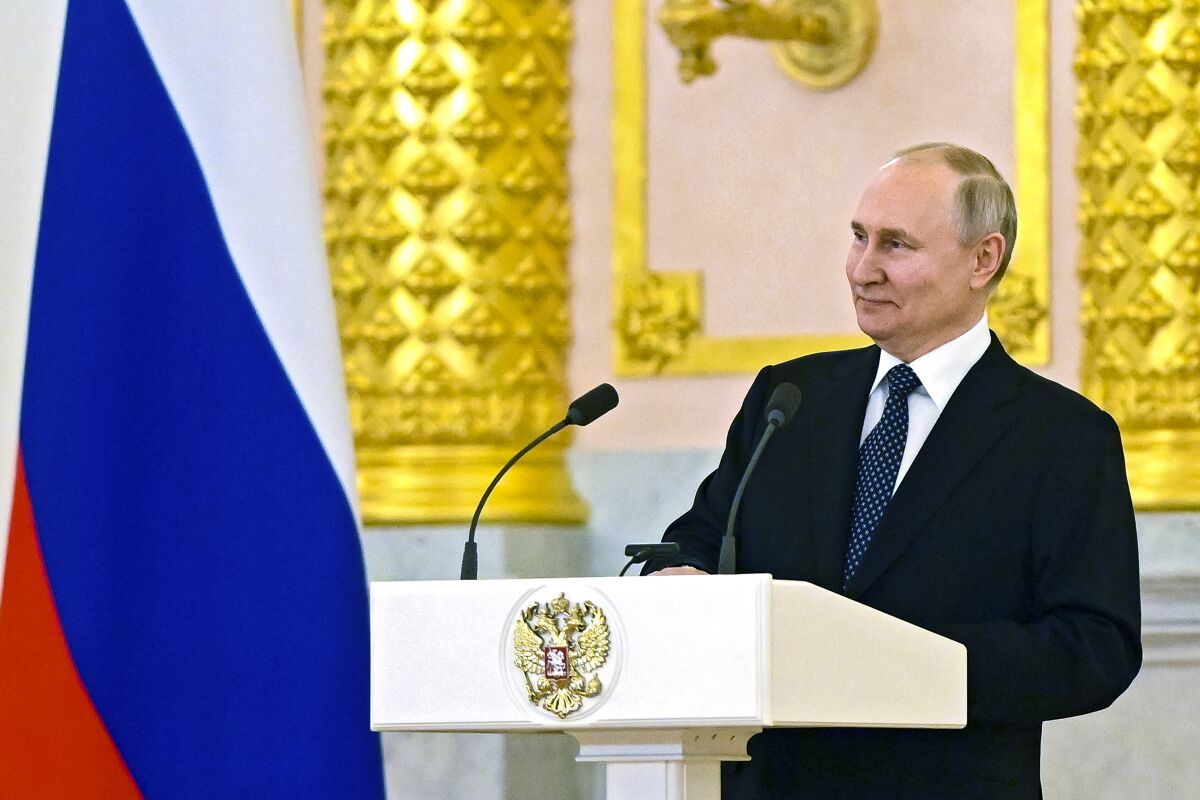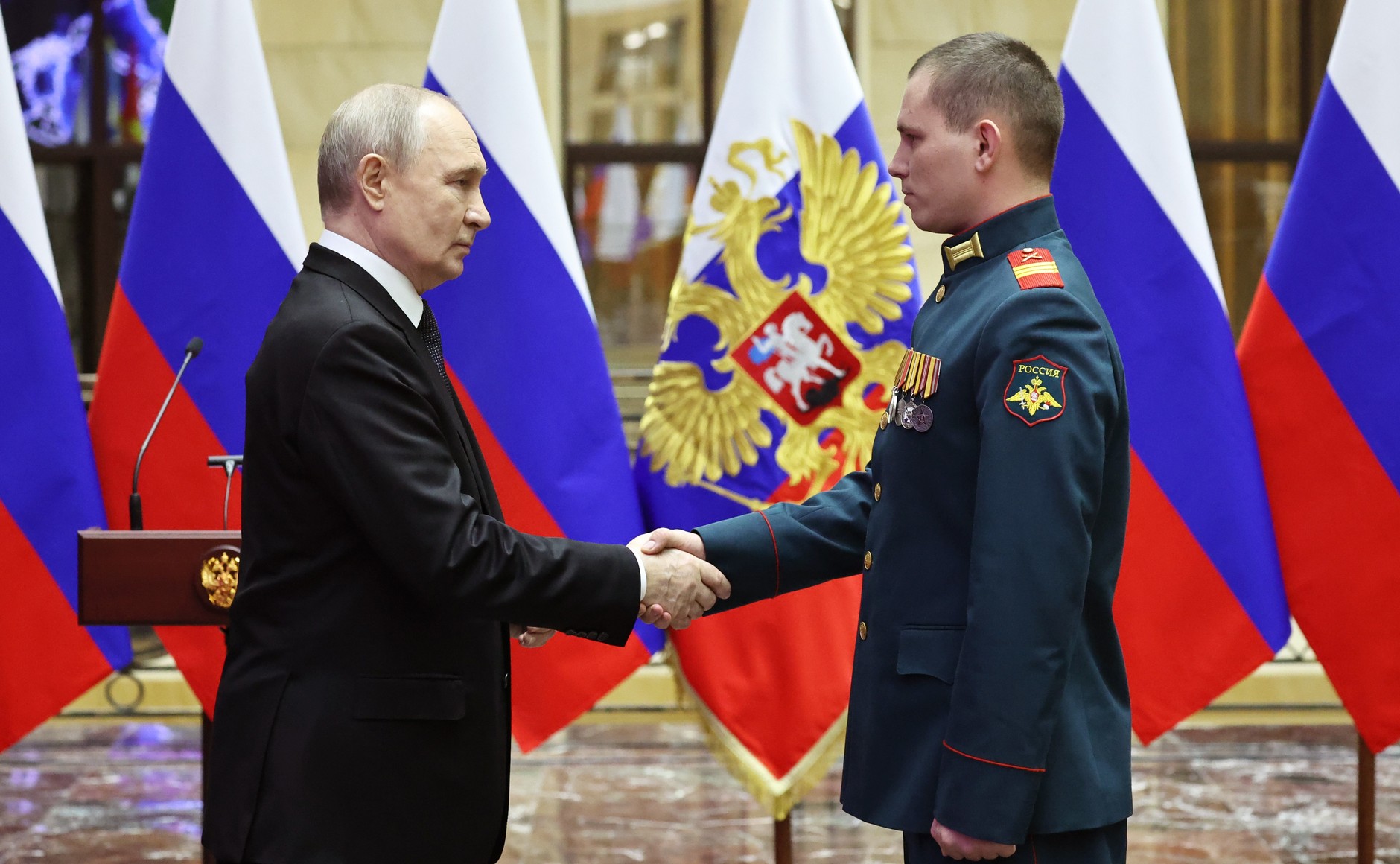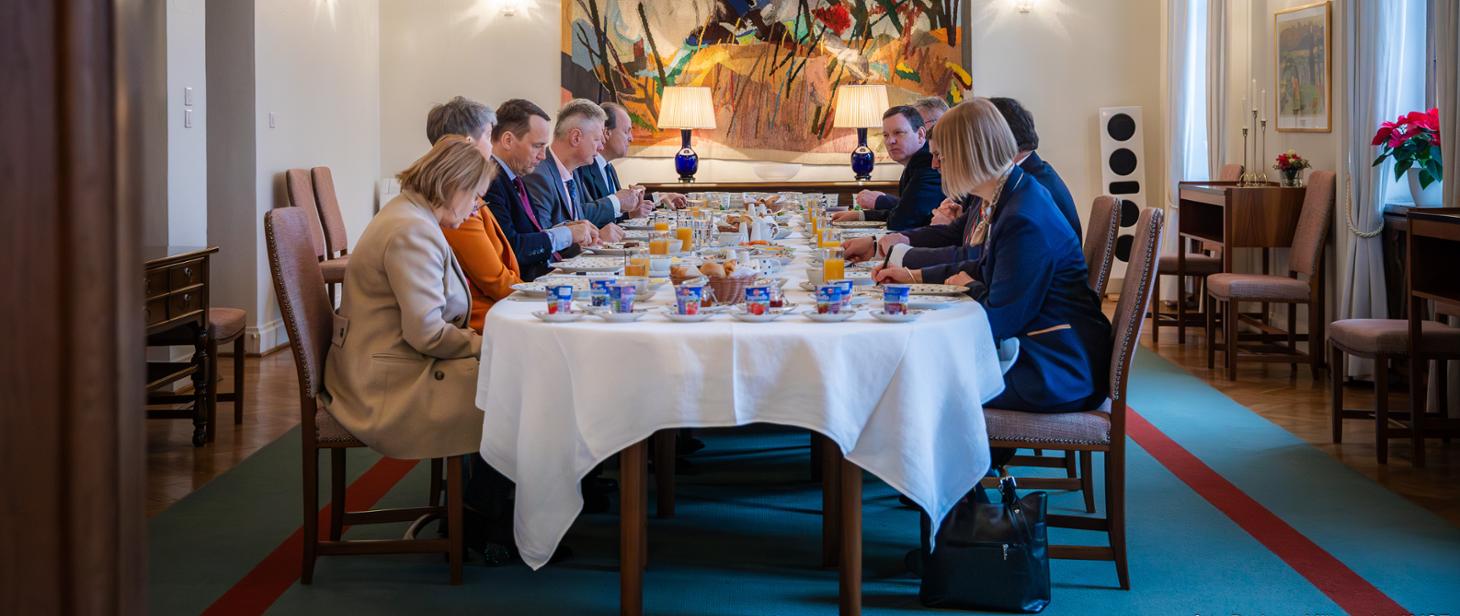
Putin’s Political Bubble Tightens Up
Putin’s Political Bubble Tightens Up
Decision-making in the Kremlin had been so erratic—even before the re-invasion of Ukraine on February 24, 2022—that the proposition of President Vladimir Putin inhabiting a bubble of servile courtiers and carefully doctored information appeared perfectly plausible. Early April 2023 has brought even more evidence supporting this assumption of detachment from reality typical for mature autocratic regimes but aggravated by an unhealthy ambition for determining the course of global affairs. Gleb Karakulov, who had held the rank of captain in the Federal Protective Service until his defection last October, tells the story of an isolated leader painfully obsessed with his personal safety (Dossier Center, April 4). Putin’s disdain for the Internet had been known before, but the fact that a leader, who has concentrated an extraordinary amount of power over a huge country, has never used a smart phone or laptop is still hard to reconcile with the proclaimed goals of digitalization and “electronic government” (Novayagazeta.eu, April 4).
Accusations by a defector are usually worth only so much, but Putin presiding over a virtual meeting of the Russian Security Council, with the pseudo-leaders of the four illegally annexed Ukrainian regions present at the table and writing down his instructions about restoring “normal life,” provided an illustration to the scale of distorting the Kremlin’s perspectives (Kommersant, April 5; Graniru.org, April 6). The presentation of diplomatic credentials by 17 foreign ambassadors to Putin was even more telling, which included United States Ambassador Lynne M. Tracy and European Union Ambassador Roland Galharague, who had to listen patiently to the Russian president’s accusations of the West in initiating confrontation with Russia (Kommersant, April 5). Unlike his minions (who presumably went through a long quarantine), the ambassadors were kept at a safe distance because—in Putin’s words—“sanitary restrictions remain in effect” (while in fact all restrictions were lifted many months ago). Thus, they collectively abstained from ending the procedure with polite applause, to the disappointment of their host (Meduza, April 5; Svoboda, April 6).
Putin’s denial of reality was the main reason why French President Emmanuel Macron’s plea to Chinese President Xi Jinping to bring Russia “back to reason” was doomed to failure (Nezavisimaya gazeta, April 6). If Xi had any expectations to persuade Putin to shift his irreconcilable position on Ukraine, those probably evaporated in the course of his recent state visit to Moscow, which the Chinese leader cut as short as diplomatically possible (Republik.ru, April 8). Unlike Macron, who brought a large group of business leaders to China, Xi traveled with a modest entourage and kept details of any new economic agreements confidential, so that no suspicions arose of possible violations in the West’s sanctions regime (Kommersant, April 7).
For Putin, who recently approved a new foreign policy concept that defines the European states as US “satellites” and commits to countering their “aggressive” policy, the warm welcome extended by Xi to Macron and European Commission President Ursula von der Leyen was a warning that Russia could be forced to go it alone in fanning the asymmetric confrontation with a newly unified West (Russiancouncil.ru, April 5).
Another warning was Xi’s reiterated point that the war in Ukraine should be ended as soon as possible, which does not deviate from China’s dubious “peace plan” but does not fit with Putin’s strategy for a long war, which Macron tried to expose as irrational (RBC, April 6). The Kremlin cannot produce any feasible plan for capturing the territories that are formally annexed to the Russian Federation or invent a meaningful definition of victory; thus, the war has become a means to enforcing more rigid control over a demoralized Russian society (The Moscow Times, April 6). The costly assault on Bakhmut serves the purpose of proving that the course of the war is controlled from Moscow, but even the “patriotic” commentators are increasingly worried about the looming Ukrainian offensive (Topwar.ru, April 4; Current Time TV, April 7). The leak of secret documents from the Pentagon confirms the thoroughness of preparations of new armored Ukrainian brigades for breaking through Russian defenses, but the official interpretation in Moscow treats this data as a deliberate US disinformation campaign (Izvestiya, April 7).
Putin may remain blissfully unaware about the possible turn of the tide in the war as Russia’s top brass keeps feeding him reports on the reinvigoration of the defense-industrial complex, which is in fact undergoing a profound degradation, no different from the civilian economic sectors (see EDM, April 6; Novayagazeta.eu, April 7). Macroeconomic data is carefully doctored, but it is still impossible to hide the vast deficit in the state budget caused by the sharp decline in petro revenues of at least 20 percent, as compared with the first quarter of 2022 (Forbes.ru, April 7). The decision by Saudi Arabia and several other major oil producers to cut production has only had a limited impact on benchmark prices. Additionally, Russian oil is being traded with a discount estimated at $34 by the Finance Ministry (Kommersant, April 7). In truth, Russian oil and gas industries have been severely affected by Western sanctions, and, as a result, further production cuts are inevitable. Moreover, the shutdown of the pivotal European market leaves Putin’s instructions on reorienting the export flows to the East quite crucial (Sever.Realii, March 31). The costs of the war, meanwhile, keep growing, and the expanding apparatus of domestic repressions adds heavily to central budget expenditures (The Bell, March 30).
Unlike Xi, Putin has apparently lost interest in economic growth and modernization and leaves the financial matters mainly in the hands of professionals, who are trapped in the sequence of impossible tasks and upbeat reporting, necessary for proving their loyalty. The Kremlin courtiers design for Putin a busy agenda of meetings with ministers and regional governors, who are eager to tell him what he wants to hear and to feign keen interest in his meaningless orders. Belarusian President Alyaksandr Lukashenka is a frequent visitor who excels at performing the function of a pseudo-partner and tireless conversationalist on overcoming the encroachments of the treacherous West. Nevertheless, this political bubble can last only as long as the Russian elite stick to habits of servility, Russian society remains passive and demoralized and the war drags on in the trenches. Thus, a minor puncture at the beginning of a renewed Ukrainian offensive could result in a major burst.


